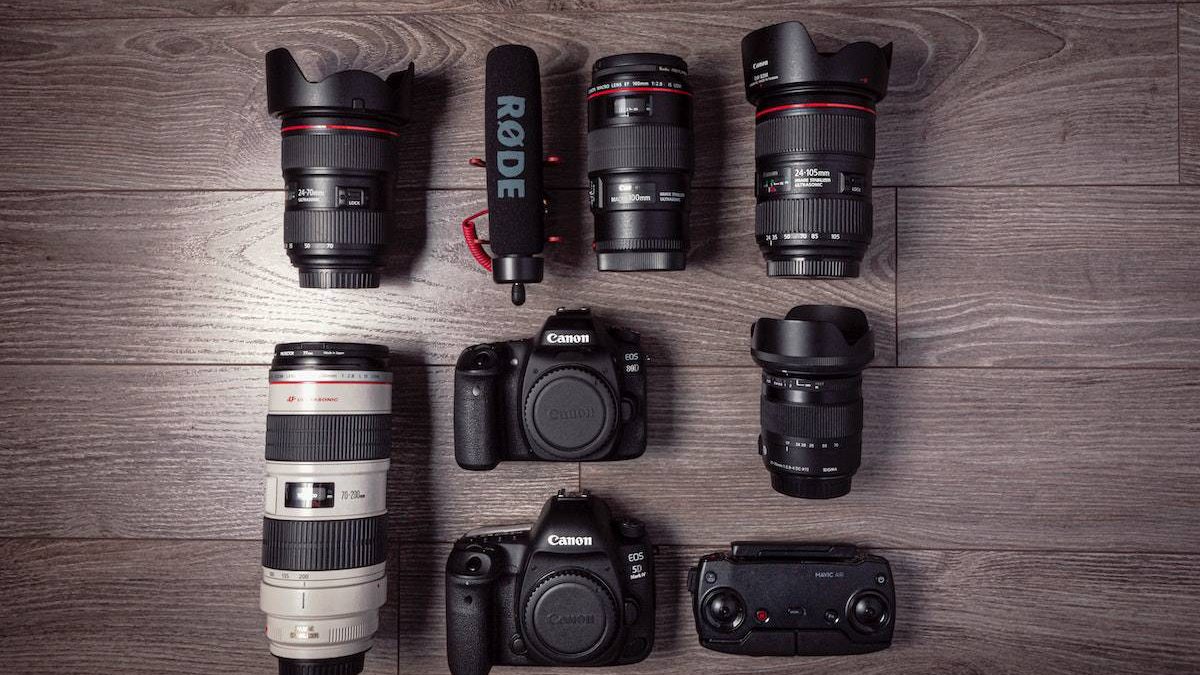Choosing the right camera can be a daunting task, as there are so many options on the market today, with cameras being offered by manufacturers and suppliers such as RS Industrial Components. To help you make a better-informed decision, in this article, we have listed down a few factors that people should think about when picking the right camera for their needs.
Table of Contents
Determine what you need
Before committing to buying a certain camera, there are a few things buyers should consider before they make their purchase. They should ask themselves a few questions such as:
- What do you need the camera for?
- What conditions will you be photographing in? This can be outdoors, indoors, low light, bright light, or a mix.
- What type of photography will you be doing? Such as landscapes, portraits, sports, animals, etc.
- What experience level do you have with cameras?
- Will you be using auto mode or do you want to manually adjust the settings?
- Any specific types of features you are looking for? Such as image stabilisation, large LCD displays, long zoom, and more.
- What is your budget?
After answering these questions, buyers will be more likely to be in a better position to make a decision and buy a camera that suits all their needs.
Size and ergonomics
Camera sizes are another type of factor to consider. That said, size can be subjective. What may feel big to a beginner may appear smaller to a professional photographer. Sometimes, with buttons that are so close to each other, compact cameras may feel awkward to use. Another thing to keep in mind is how easy it is to transport and move the camera, as large cameras can be clunky and difficult to move. There are also camera models out there that have grips to ensure optimal comfort when transporting and holding them.
Durability
It is important to remember that some cameras are built to last for a long time, while others are not. This should be taken into account when making a purchase. For instance, if a buyer knows they are looking to shoot most of their photos indoors, durability may not be such a huge deal to them. Conversely, if they are looking to take photographs outdoors and in the wild, it is better to purchase a durable and weather-resistant camera instead.
Lens quality
Cameras typically come with either interchangeable or fixed lenses. To help buyers narrow down their options, they first need to decide whether or not they are comfortable with having fixed lenses on their camera, or if they need interchangeable lenses for further flexibility. The ability to use different lenses increases a user’s creative opportunities. It also opens them up to an entirely different world of photography. On the other hand, fixed-lens cameras are usually easier to use, and they come with a prime or zoom lens.
Extra features
Some other features that may be included in or with a camera that a buyer may consider include things such as:
- Tripods/monopods
- External flashes
- Reflectors
- Spare batteries or rechargers
- Memory cards
- Lenses
- Filters
- Camera case
- Wireless connectivity
- Dual memory card slot
- RAW file support
- Shooting modes
- Built-in flash
- Image stabilisation
Performance and speed
Other important specs a buyer may want to check out before they purchase a camera are its frames per second (fps), startup time, autofocus speed, and overall operational speed ratings. The fps rating refers to the number of shots, photos, or frames that a camera can capture in one second. For instance, higher fps ratings typically give a clearer and smoother video or image.
Resolution rating
Resolution is measured in megapixels, and it affects the image quality of digital cameras. If a photographer plans to crop their photo and print images on large surfaces, it may be better to pick a camera that has a higher megapixel rating. Photos that have high megapixels tend to boast more detail, however on the flip side, they also take up more storage space on the camera’s memory card. This makes the photo longer to store, send and edit.
Read reviews
It also behoves buyers to do a little research before making a purchase. Again, it is best to not only rely on the words of the salesperson but to also look up testimonials from other users. This means taking the time to read reviews, either in magazines or online, that can help buyers narrow down their searches. Fortunately, there are plenty of forums or reviews that can be found online that buyers can use to help them make a decision.
Bottom line
Overall, it is important to remember that the right camera is the one that aligns with your photography goals, budget and preferences. As such, people should take their time to research and consider their options. Do not hesitate to reach out and seek advice from experienced photographers or camera enthusiasts.
Related posts
Sidebar
Recent Posts
How to Choose the Right VPS Server for Your Needs
In today’s digital landscape, selecting the right Virtual Private Server (VPS) holds the key to a successful online presence. With…
Cloud Data Compliance: Ensuring Data Security in the Cloud
Explore the critical aspects of cloud data compliance and why it’s essential in today’s digital landscape. Learn about legal regulations,…



